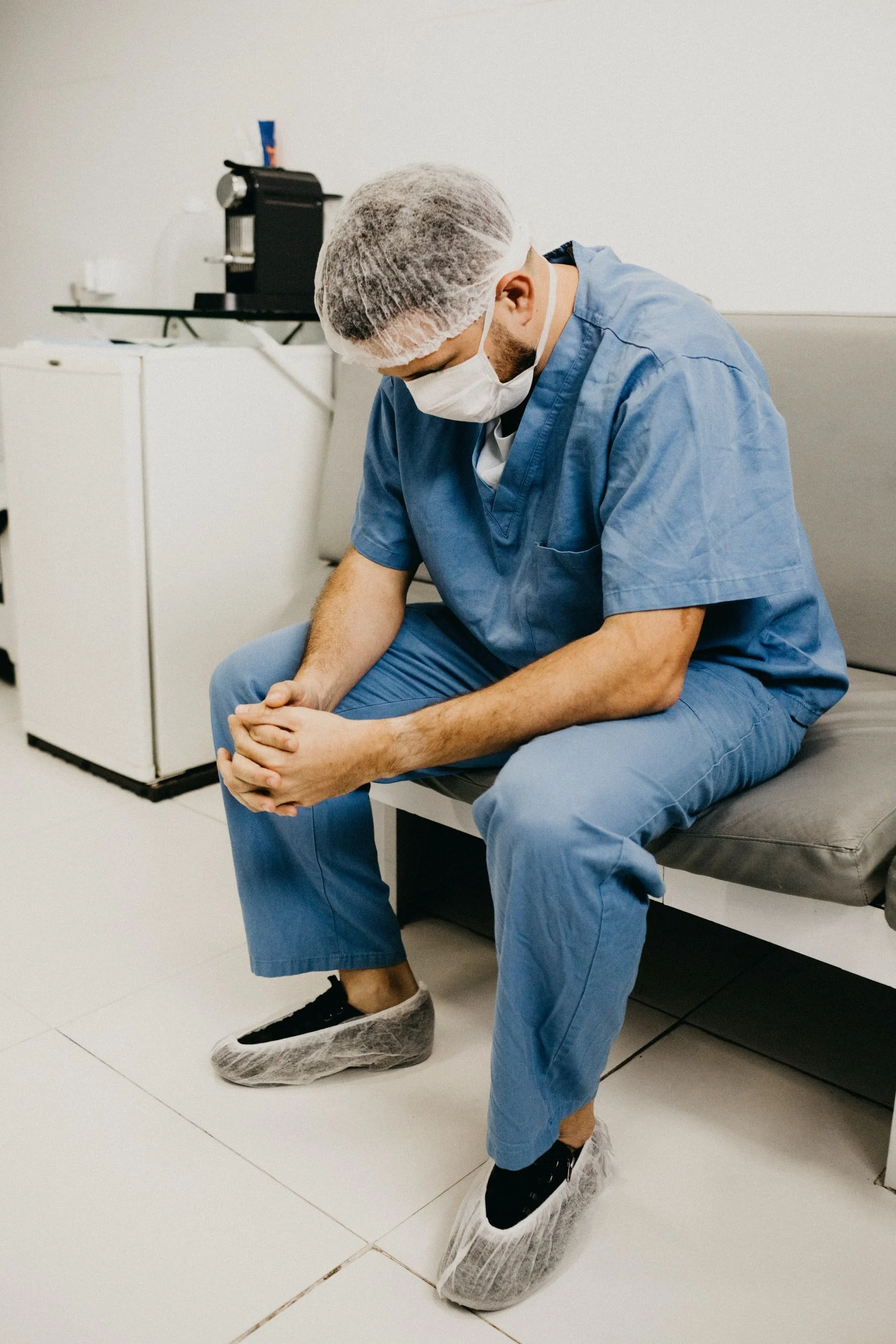#30 You are Not an Imposter. You are a Human.
It feels like everyone is talking about imposter syndrome. Imposter syndrome is defined as doubting one’s abilities or feeling inadequate, like a fraud. It disproportionately affects high achievers and perfectionists who tend to find fault even with their own marvelous accomplishments. Every human feels it from time to time, even men. Much of the writing and studies seen recently in the media focus on the phenomenon in women and speaking of it in terms of a medical or psychiatric diagnosis.
The Harvard Business Review has gotten in on the movement. Authors Ruchika Tulshyan and Jodi-Ann Burey ask the people in the business world to “Stop Telling Women they have Imposter Syndrome.” They object to taking a “fairly universal feeling of discomfort, second-guessing, and mild anxiety in the workplace and pathologized it, especially for women. The authors resent the victim blaming of a biased system that makes women feel as though they do not belong. They write, “For women of color, universal feelings of doubt become magnified by chronic battles with systemic bias and racism.”
https://hbr.org/2021/02/stop-telling-women-they-have-imposter-syndrome
In Emergency Medicine News, Dr. Simons (AKA the ER Goddess), wrote a response to the Harvard Business Review authors and the general public regarding her take on the matter. In It's Not Imposter Syndrome—It's Gender Bias, she frames the issue in medical work-place and training programs. She writes, “The discomfort that women have been convinced is imposter syndrome is not a psychological affliction but a normal response to being female in a culture rife with gender discrimination.”
She concludes, “Labeling female physicians as having imposter syndrome may be easier than changing workplace culture, but it inappropriately blames individuals for natural reactions to persistent sexist overtones in medicine. Rather than helping women fight imposter syndrome, we should be fighting gender discrimination.”
In the blog section of Women in White Coats, Dr. Mary McCrary, wrote of her own experience with imposter syndrome as she rose through the ranks of medical student, intern, OB resident and then OB chief resident. She noted at every stage of transition, the professionals around her were at a higher level of experience and training and by comparison, she naturally felt inadequate. By the time she reached her chief resident year, she realized her own thoughts about her skills and what she had to offer to patients and trainees had to change. She wrote, “I knew how to be more aware of my thoughts; I learned how to adjust those thoughts, and ultimately I knew how to have a different opinion of myself. I was able to see these limiting thoughts and reframe them.”
In the Doximity Op-Med section, Dr. Kristin Yates related her own feelings of imposter syndrome as she also rose through the ranks as an OB-GYN resident. She found that the thoughts of inadequacy followed her even as she became more experienced and successfully advanced in her medical training. Dr. Yates finally realized, “What I know now is that we must deal with impostor syndrome head on if we want to overcome it. Dealing with it head on means recognizing it for what it is: a normal part of being a human being, especially if you are a "high achiever." Unfortunately, it does not resolve on its own with time and experience. Our brains will think of new excuses about why we don’t belong. That is, of course, unless we teach ourselves how to recognize the thoughts that cause impostor syndrome and provide new thoughts instead.”
I have the utmost respect for my colleagues and I appreciate the experiences and opinions they have shared online. I agree and disagree with their positions. The Imposter Syndrome is not an actual disease or affliction that strikes women in our profession. There is no listing in the Diagnostic and Statistical Manual of Mental Disorders. We do not require medication or treatment. We are not to blame for the condition nor should we labor in shame.
Yes, there is both racial and gender bias within our society, our medical training system, and our workplaces. Yes, we all should be fighting against racial and gender bias within hospitals and offices. Even if we waved a magic wand and all racial and gender bias in the work place instantaneously went away, women would still question their adequacy because all their current experiences are filtered through their own brains.
No one can force us to feel inadequate. Inadequacy is a feeling caused by a thought like, “maybe I’m not good enough” or “maybe I don’t really belong here.” We get to choose for ourselves what we think in every situation. Like it or not, those of us raised as persons of color and women in our society have internalized the thoughts of bias that were offered to us on television, movies, and the classroom. We need to choose better thoughts. Additionally, we judge ourselves harshly. While we wait for the world and society to fix biases, we have to work on our own thoughts first and exercise self-compassion.
The Imposter Syndrome is just a description of a collection of your own critical, self-talk thoughts. That’s it. Some high functioning, perfectionistic people, particularly some women, never feel good enough. They always feel like there is something wrong with them or they need to fix the next thing or get the next fellowship to finally feel okay about themselves. This brutal self-criticism and judgement has got to stop. We need for every person to love themselves first and believe in their own worthiness. Every person needs to bring their best selves to the clinical bedside, the operating room, or the meeting. We need to change from within and the way to do that is to change what we think about ourselves first. This is what we can do today, while we wait for society to change.
Did you know that you can change your thoughts just by practicing thinking something new, on purpose, that you can believe? You have to repeat the desired new thoughts many times for them to stick. It takes practice to undo a lifetime of habitual self-criticism and internalized bias. When society or your own brain offers you an old-fashioned and un-helpful thought about your own abilities or worthiness, you just need to politely decline that notion. In the human experience, moments of self-doubt will inevitably pop-up and cause us to question ourselves. This is normal. You need to think, “I belong here. I can do this and in fact, I can do this well. I’m amazing. I’m a badass.”
You can think this even when you don’t know the answers to questions on rounds or when you make a mistake (and sooner or later we all will.) This is all part of the human physician experience. Thank you for putting on your scrubs or your white coat to take care of us. We need every one of you to put your best self out there with confidence.
This article first appeared in the ACOEP Doc Matter forum.






